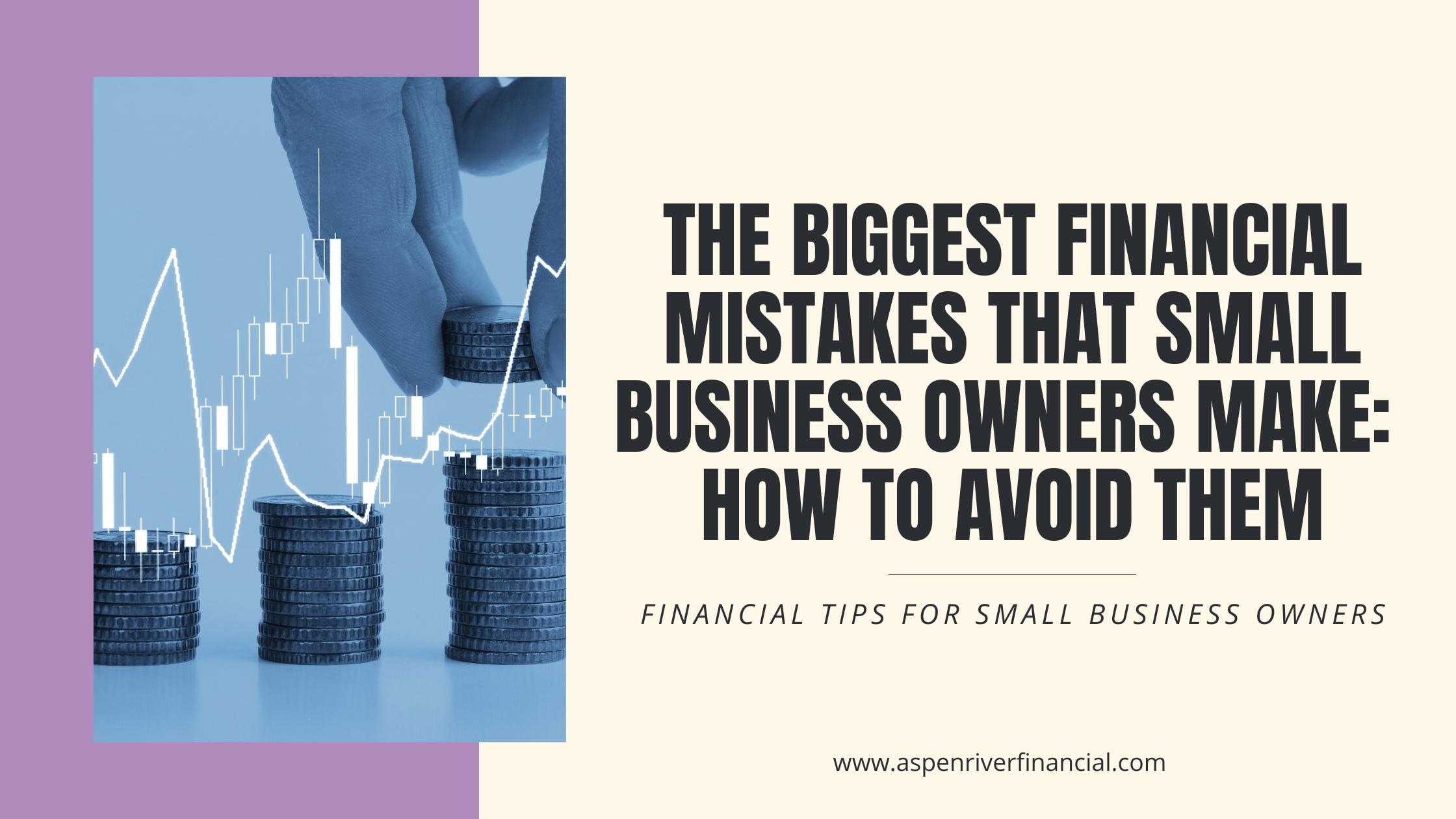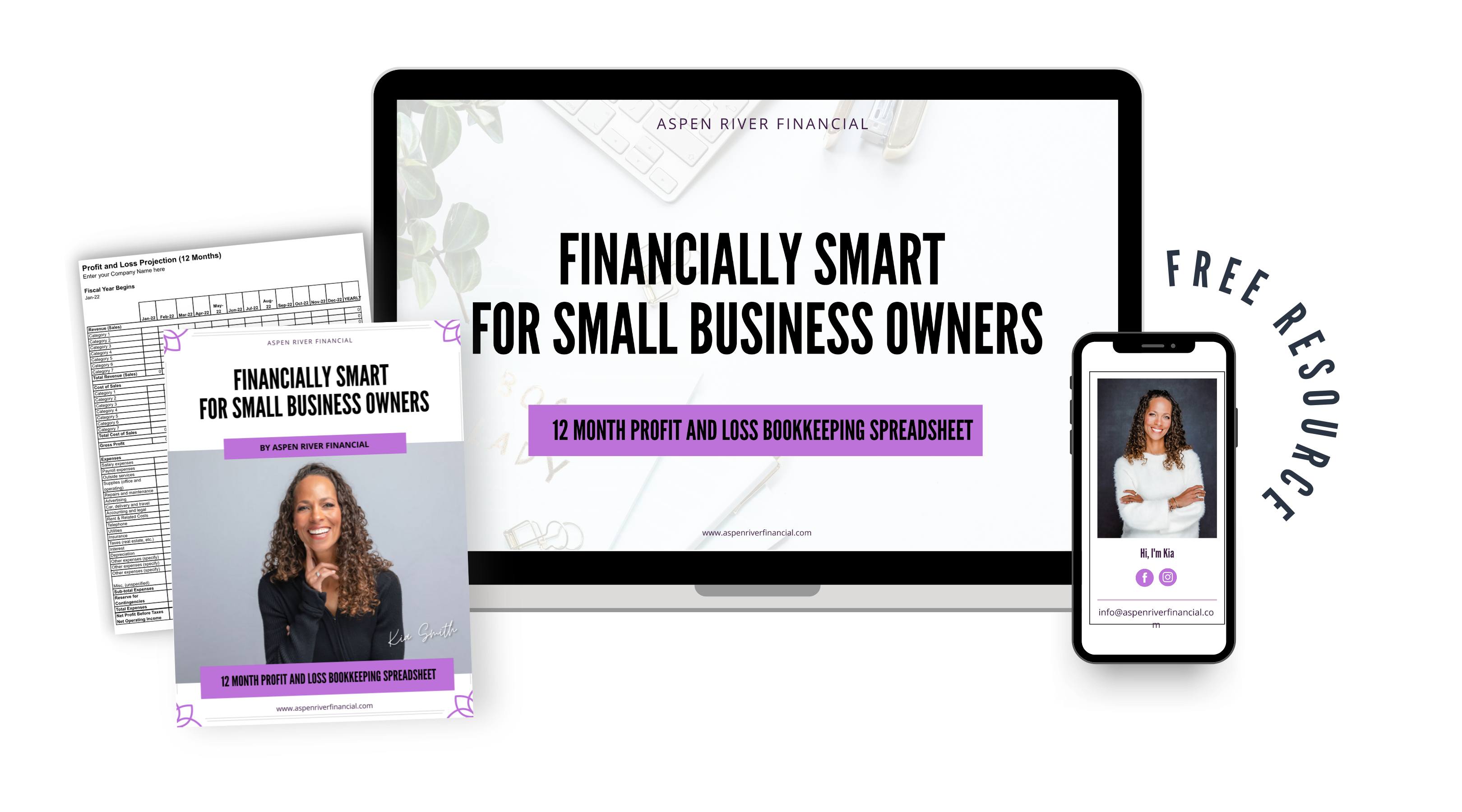
Making money is one of the main goals of small business owners, but making mistakes with your finances can easily put a damper on those plans.
In this article, we will discuss some of the biggest financial mistakes that small business owners make and how to avoid them.
By being aware of these common mistakes, you can keep your business finances on track and ensure success!
What are small business owners’ biggest financial mistakes, and why are they so harmful to their businesses?
1. No clear understanding of their financial situation.
Many small business owners make the mistake of underestimating the importance of sound business financial management. Without a clear understanding of their financial situation, small business owners can quickly find themselves in hot water.
For small business owners, having a clear understanding of your financial situation is essential for making sound decisions and ensuring the long-term success of your business.
2. Failing to track expenses
Failing to track expenses is one of small business owners’ most common financial mistakes. Knowing where your money is going and how much you can afford to spend can be difficult without accurate records. This can lead to overspending, which can strain your cash flow and negatively impact your bottom line.
As a small business owner, keeping track of your expenses is important. After all, every penny counts when trying to run a successful business. Fortunately, there are a number of different ways to track your expenses.
One of the simplest ways to track your expenses is to use a spreadsheet. You can create a spreadsheet in Excel or Google Sheets and then input all of your expenses into the sheet. This will help you see exactly where your money is going and can also be helpful come tax time.
Another way to track your expenses is through small business accounting software. This type of software can help you keep track of your income and expenses, and it can be very helpful in giving you a clear picture of your financial situation. There are a number of different small business accounting software programs available, so be sure to do some research to find the one that best fits your needs.
No matter your chosen method, tracking your expenses is essential for any small business owner. By understanding where your money is going, you can make better financial decisions for your business.
3. Not having a budget
Not having a budget is another common mistake small business owners make. A budget provides a roadmap for your finances and helps you allocate your resources to help you achieve your financial goals. Without a budget, it can be easy to overspend and get off course.
As a small business owner, keeping a close eye on your finances is essential. One way to do this is to create a budget for your business. This will help you track your income and expenses and ensure you are not spending more than you bring in.
To create a budget, start by listing all of your income sources. This could include things like sales, investments, or loans. Then, list all of your expenses.
Be sure to include fixed costs (like rent or insurance) and variable costs (like marketing or inventory). Once you have your income and expenses tallied up, you can start to see where your money is going. From there, you can make adjustments to ensure that your spending aligns with your revenue.
Creating a budget may seem like a daunting task, but it is an important part of keeping your small business afloat. By taking the time to track your finances, you can ensure that your business is running smoothly and efficiently.
4. Not setting aside enough money for taxes
Not setting aside enough money for taxes is another common mistake small business owners make. Taxes can take a big bite out of your profits, so it’s important to set aside money each month to cover your tax liability. Failing to do so can leave you owing a large sum of money.
As a small business owner, it’s important to set aside enough money for taxes. This can be a challenge, especially if your business is new or you’re struggling to turn a profit. However, you can do a few things to ensure you’re prepared come tax time.
First, talk to your accountant or tax advisor. They can help you estimate how much you’ll need to set aside based on your circumstances. Second, make sure to keep good records of all your business expenses.
This will help you deduct as much as possible come tax time and give you a better idea of how much money you need to set aside each month.
Finally, try to save some money each month, even if it’s just a tiny amount. This will help you build up a cushion if your taxes are higher than expected.
Small business owners often make common mistakes when it comes to their finances. By understanding where your money is going, you can make better financial decisions for your business. In this article, we have highlighted three of the most common mistakes small business owners make and provided tips on avoiding them.
Creating a budget, setting aside money for taxes, and tracking expenses are all essential for any small business owner. You can ensure that your business is running smoothly and efficiently by taking the time to implement these measures.
For more strategies and tips on small business finance, read more articles here.
Do you have a question about business finances that you would like answered? Send us an email at info@aspenriverfinancial.com, and we may feature your question in a future blog post!’
Just started your business and are already confused about your income and expenses and how to track them effectively? It gets to be easy! Download the FREE 12-MONTH BOOKKEEPING SPREADSHEET that will have all your income and expenses in one place for tax time. Click here to download it!
Still feeling lost when it comes to your business finances? We offer accounting and services that can help – click here to book your free value call with us.

Hi there, I'm Kia!
I am your Certified Public Accounting, Enrolled Agent and Certified Money Coach with vast experience in accounting, taxation, business planning, and impeccable client rapport you can trust.
Let's Connect!
GRAB YOU FREE 12 MONTH BOOKKEEPING SPREADSHEET

